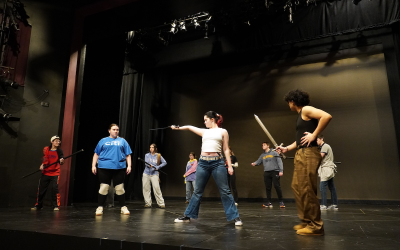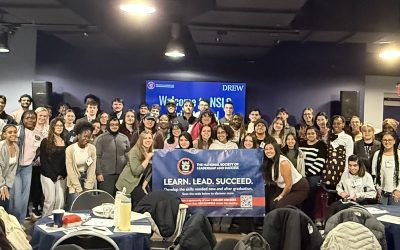Perspectives from Drew faculty and staff experts
October 2024 – With the charged 2024 Presidential Election fast approaching, Drew University faculty and staff have weighed in to provide perspectives and insights from their areas of expertise.
G. Scott Morgan, Chair and Professor of Psychology
What is your perspective of this election?
I study the psychology of political ideology, exploring how a person’s beliefs—whether liberal or conservative—affect their thoughts, feelings and behaviors in a variety of contexts. Interestingly, research shows that most people hold complex mixtures of liberal and conservative views, and that there is substantial overlap in the policies that everyday liberals and conservatives support. Nonetheless, the degree to which people dislike members of the opposite political party is at an all time high. So even though we may agree on many things, we feel more divided than ever.
There are many reasons for rising animosity. People increasingly view their political beliefs as grounded in moral good and bad, leading them to see those who disagree not only as “wrong” but as malicious. In addition, people have come to see their political party as an important group membership, fueling an “us” versus “them” mentality. Political party has become a lens through which people process information. We expose ourselves to and accept information that casts our party in a positive light, and we ignore or reject information that challenges our party. And all of the above has become supercharged by our environments—our leaders, new outlets, and social media algorithms create echo chambers that fuel the fires of moral disagreement and group division.
What would you say to people on either side of the aisle who are concerned about the outcome and/or integrity of the outcome?
This is a challenging moment for our nation, but there are some paths toward reconciliation. Research suggests that focusing on meaningful similarities—our shared humanity—reduces animosity. The research of Dr. Emily Kubin C’17, a Drew alum, has found that when people from opposing parties share stories of how policies have impacted their own lives, they cultivate respect. More generally, psychology research shows that forming personal connections with people across group divides can help heal division. Reconciliation is difficult, but it is possible!
To those concerned about the outcome or integrity of the election, I would say that their concern is valid! There are deeply meaningful things at stake in this election, and people’s trust in the democratic process has eroded substantially. In psychology, we know that if people trust the fairness of a process (e.g., the fairness of election procedures) this leads them to accept its outcome (seeing the winning candidate as legitimate). However, when people feel morally invested or have deep commitments to a group, this can flip on its head. People use the outcome (whether their preferred candidate won) to make judgments about the process itself. The current political climate amplifies this tendency. So, in my view, people are right to be concerned. It is imperative that we think carefully about any claims that the election was unfair. And we must recommit ourselves to the basic norms and processes of democratic elections, because they are built to promote people’s acceptance of political outcomes.



